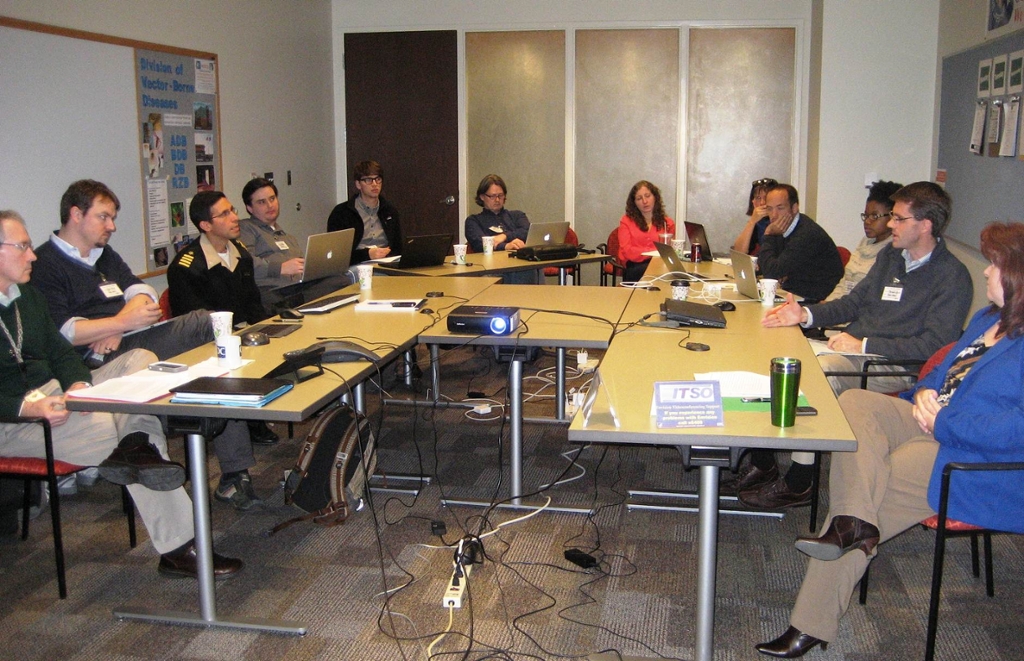
Partners
CVEC Partners are organizations and individuals who aim to work with CVEC faculty, staff and students to advance research, education, and service in vector-borne diseases. Please peruse the list for opportunities to collaborate, enhance training, visit partnering institutions, and engage in broader activities beyond CVEC and our partners’ home locations.
California Department of Public Health, Vector-Borne Disease Section (VBDS)
VBDS and CVEC partner on research, service and training to help fulfill VBDS's mission to protect the health and well-being of Californians from diseases transmitted to people from insects and other animals.
College of Agricultural and Environmental Sciences
As one of the co-founding partners of CVEC, CAES includes CVEC affiliate and core faculty members. CAES students may elect to enroll in the Designated Emphasis in the Biology of Vector-borne Diseases (PhD students) or courses taught by CVEC faculty (graduate and undergraduate students).
College of Biological Sciences
Faculty in CBS include CVEC affiliate and core members. CBS students may elect to enroll in the Designated Emphasis (PhD students) or courses taught by CVEC faculty (graduate and undergraduate students).
Fondazione Edmund Mach
Located in Trento, Italy, FEM has formalized an Agreement of Cooperation with CVEC that offers opportunities to collaborate on research projects of common interest. There are opportunities for student exchange as well. Contact CVEC Directors for more information.
The Real-time PCR Research and Diagnostics Core Facility
The Real-time facility offers fee-for service diagnostic testing for vector-borne pathogens and related samples. They can work with researchers to design assays and assist with new applications and often collaborate with researchers investigating vector-borne and other diseases.
Redox Biology Core
The Redox Biology Core offers redox and bioenergetics consultation, training, and diagnostic services to UC Davis and off-campus researchers. Free radicals are often short-lived but are known to play crucial roles in many processes such as photosynthesis, oxidation, and catalysis, and detection can elucidate the role of free radicals in many pathologies and toxicities. Bioenergetics analyses can detect markers for mitochondrial dysfunction found in many neurological diseases and implicate mitochondrial regulation in infectious diseases.
School of Medicine
As a major supporting partner of CVEC, the SOM supports state-of-the-art clinics, biomedical research, and training. Faculty in SOM include CVEC affiliate and core members. SOM-affiliated PhD students may elect to enroll in the Designated Emphasis. The CVEC insectary is housed within the SOM.
School of Veterinary Medicine
The SVM is a co-founding partner of CVEC and is currently the organizational home (Department of Molecular Biosciences) for CVEC and the CVEC surveillance program. Faculty in the SVM include CVEC affiliate and core members. SVM-affiliated PhD students may elect to enroll in the Designated Emphasis. The CVEC J1 animal-BSL3 research facility and two BSL-3 research units are housed within the SVM.
School of Veterinary Medicine Office for Global Programs
SVM Global Programs promotes, facilitates, and supports global programs for research, education, and service and includes a variety of CVEC affiliate and core faculty members. There are numerous opportunities to collaborate with Global Programs faculty, students, and staff. SVM Global Programs also assists faculty, staff, and students who seek funding for global projects and training.
School of Veterinary Medicine One Health Institute
The One Health Institute is active globally and provides collaborative opportunities with CVEC faculty, students, and staff to work at the interface of animals, people, and the environment to address health and conservation. The One Health Institute is home to the Wildlife Health Center, Health for Animals and Livelihood Improvement Project (Tanzania), the Marine Ecosystem Health Lab, the California Raptor Center, and other units.
St. George’s University
Founded as an independent School of Medicine in 1976 in Grenada, West Indies, SGU is now an international center for education in medicine, veterinary medicine, the sciences, public health and business. CVEC has partnered with SGU to develop an international training program for vector-borne diseases to build research capacity and operational translation in 10 member states of the Caribbean Community, including Belize, Dominica, Dominican Republic, Grenada, Guyana, Haiti, Jamaica, St. Lucia, St. Vincent, and Suriname. SGU faculty coordinators include Drs. Calum Macpherson, Diana Stone (UCD SVM ’91) and Brian Butler (UCD PhD ’10).
UC Davis Genome Center
The UC Davis Genome Center integrates experimental and computational approaches to address key problems at the forefront of genomics. The Center is housed in a new research building with state-of-the-art computational and laboratory facilities. Center components include five service cores that are dedicated to the detailed understanding of organismal health and disease: DNA Technologies, Expression Analysis, Proteomics, Metabolomics, and Bioinformatics.
University of Agricultural Sciences and Veterinary Medicine of Cluj-Napoca, Romania
The University of Agricultural Sciences and Veterinary Medicine of Cluj-Napoca, Romania (USAMV Cluj-Napoca) has formalized an MOU to promote and facilitate exchange and cooperation between the two institutions. This includes the bilateral exchange of PhD students, researchers, and training staff; joint field trips; the development of joint proposals to seek research grants to fund collaborative R&D activities; and development of collaborative research programs. Contact CVEC Directors for more information.
